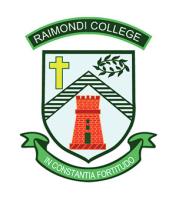| Language Policy |
English is the medium of instruction except for Chi. Lang., Chi. Hist., Putonghua, Religious Studies, Citizenship and Social Development and Life Planning Education. |
| Learning and Teaching Strategies |
Since 2014-2015, small class teaching scheme has been launched to reduce the class size to about 26 students in S.1-S.2. The School also arranges split classes in Chinese Language, English Language, and Mathematics for S.3-S.6 students. To complement the scheme, we nurture learning communities conducive to effective interactions and knowledge co-construction by implementing current pedagogies and special seating arrangements in class. We employ Flipped Classroom and e-learning strategies to equip our students with cognitive and literacy skills in authentic and applicable contexts as well as to align learning, teaching and assessment. |
| School-based curriculum |
1. Electives: 4X. Students should choose 3 or 4 from the 14 electives.<br><br> 2. Curriculum highlights: - A broad and balanced curriculum aiming at promoting students’ Learning to Learn capabilities and laying a sufficient knowledge base for further studies is designed for S.1-S.2 students.<br>- A strong interface at S.3 with special consideration on elective choices is provided, so that students can make wiser choices in senior secondary studies.<br>- Reading strategies: Drop-Everything-And-Read (DEAR) programme; subscription to online reading platforms in English and Chinese; Extensive Reading Schemes in both languages; cross-curricular reading schemes; writer’s talk; book exhibition; parent-child paired reading.<br>- Curriculum highlights for English Language and Chinese Language: <br> (1) English: Pre-S1 Bridging Course, S.1-2 Language Across the Curriculum, S.3 Musical Drama Showcase, S.5 Trade Market;<br> (2) Junior Secondary Self-Directed Learning Writing Portfolio, school-based practical writing materials, Reading Award Scheme.<br>- STEAM education incorporates robotics, coding, 3D printing, Augmented Reality (AR) and Virtual Reality (VR) technology as well as scientific investigations into the school curriculum in a cross-disciplinary manner. |
| Approach to Catering for Learner Diversity |
In S.1-S.3, early detection of learning challenges enables teachers to help students acquire appropriate study skills and restore their confidence in learning. For S.4 & S.5, additional resources, coupled with action research on suitable teaching strategies, are deployed to provide small class teaching in diversely-abled classes. Pull-out programmes are conducted for students displaying aptitudes in languages, mathematics and science to further enhance their knowledge and skills in the corresponding fields. Gifted Education policy is executed to identify talented students for pull-out programmes and competitions in English and Chinese Languages, Mathematics and Science. |
| Approach to Integrated Education |
Support provided for students with special educational needs and learning diversity: • The Support team for students with special educational needs is led by the SENCO. Members include guidance teachers, 1 educational psychologist, 2 social workers and 1 teaching assistant. • Guidance prefects will assist the S.1, S.2 students with learning diversity twice a week during lunch time. • Social skills training and speech therapy services will be offered to help students with special educational needs. • Arrange for teachers to take courses as required by the EDB to effectively support students with special educational needs. |
| Education Support for Non-Chinese Speaking (NCS) Students |
|
| Home-School Co-operation |
The Parent-Teacher Association serves to act as a direct linkage between parents, teachers and Josephians. Meetings are held where ideas and suggestions are exchanged between the school authority and members of the Executive Committee. A wide range of meaningful and educational activities like the workshops/seminars for parents, parent-teacher joint consultations, Weekend Connect, online cooking class, Recycle of school uniform, Community Outreach Programme seminars and sharing sessions are also held within the academic year. These meaningful activities tremendously enhance home-school cooperation and improve communication between parents and children. |
| School Ethos |
Through our school motto "IN CONSTANTIA FORTITUDO" the spirit of our school is well manifested. We educate students in areas of moral, intellectual, physical, social, aesthetic and emotional development through providing them with learning opportunities and experiences in different subjects, extra-curricular activities and activities organised by the Board of Value Education, Counselling Team and Moral and Civic Education Team. |
| School Development Plan |
Our major concerns for 2021-2024 are:<br>1. To reinforce an interactive and technology-driven pedagogy for a more engaging learning environment that enhances learning effectiveness. <br> <br>2. To develop positive thinking in students through upholding the values of love, perseverance and integrity. <br> |
| Teacher Professional Training and Development |
Three "Staff Development Days" are held every year with the aim of improving the effectiveness and the quality of learning and teaching. To keep teachers abreast of the latest trends in education, the School strategically arrange teachers to attend courses and seminars organised by the EDB, including training in senior secondary curriculum, courses on catering for diverse learning needs, national and national security education, value education and STEAM education. Besides, many teachers are pursuing postgraduate studies at the moment. |
| Life-wide Learning |
More than 40 items classified into 6 groups, namely academic, interest, cultural, service, uniform and religious. |
